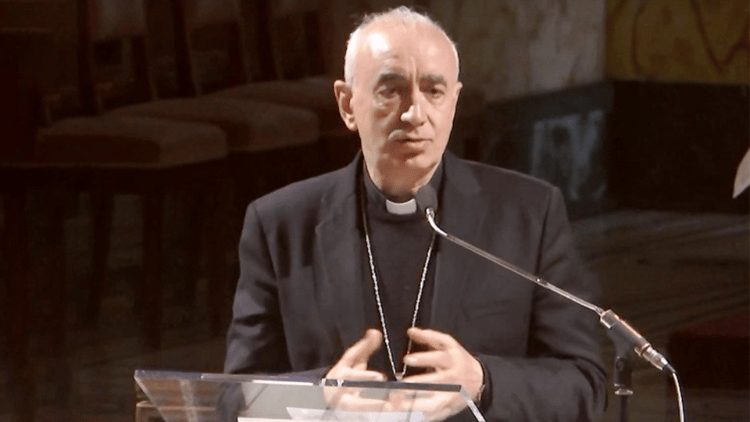ROME – Just days after a prominent cardinal called for a “permanent dialogue” with Freemasons, suggesting that “an evolution in mutual understanding” has taken place over the last half-century, a top theological advisor to Pope Francis has reiterated the fundamental incompatibility between masonry and Catholicism.
Bishop Antonio Staglianò, President of the Pontifical Academy of Theology, also confirmed a November 2023 Vatican ruling that Catholics who join Masonic lodges are in a state of “grave sin” and may not receive communion.
“Within Freemasonry, plots of occult power develop which are in contradiction with Christian action,” Staglianò told Vatican Media. “In short, when we talk about irreconcilability, we are referring to profound contradictions.”
The comments came in the wake of a Feb. 16 conference in Milan that brought together leaders of Italy’s major Masonic lodges and senior Catholic officials, including Archbishop Mario Delpini of Milan.
Also present at the summit was Italian Cardinal Francesco Coccopalmiero, a former auxiliary bishop of Milan under the late Cardinal Carlo Maria Martini and also a former head of the Vatican’s Pontifical Council for Legislative Texts.
According to media reports, Coccopalmiero alluded to gains in mutual understanding since the Second Vatican Council (1962-65) and floated the idea of a permanent dialogue between Masonry and Catholicism, “even at the official level, so we can better deal with each other.”
Those same reports indicated that Staglianò, 64, was also present at the Milan event.
In his Feb. 24 interview with Vatican media outlets, Staglianò appeared to cut short any speculation that the Vatican’s position vis-à-vis Freemasonry might be evolving.
“The Masonic heresy is one which is fundamentally aligned with the Arian heresy,” he said, referring to a movement in the early church which denied the divinity of Christ.
“At bottom, it was Arius who imagined that Jesus was the Great Architect of the Universe, denying the divinity of Christ,” Staglianò said, implying that the same conviction is contained within Masonic doctrine.
“This idea is the fruit of human reason, which tries to imagine itself a god, while the God of Catholics is the fruit of the revelation of God in Jesus Christ,” Staglianò said. “In substance, it’s the fruit of an historic event in which God was made man, coming close to human beings and speaking to them, giving them the destiny of salvation.”
Staglianò also said that Catholicism and Masonry have different concepts of solidarity.
“Our fraternity is instituted in the sacrament of the love of God in Jesus, instituted in the Eucharist, not just in the generic idea of being brothers,” he said.
“Christian charity corresponds to the historic event of a God who died and rose again for us, and asks his children not to be simply philanthropists but, eventually, to be crucified for love,” Staglianò said.
Staglianò also denied that the legendary Italian-German theologian Romano Guardini, whose writings have occasionally been cited favorably by Masons, could be appealed to as a basis for the idea that “we can stand together.”
The president of the Academy of Theology also criticized the Masonic penchant for esoteric doctrines revealed only to initiates.
“Catholicism too speaks of mystery,” he said. “But the Gospels tell us that the mystery hidden for centuries has not ceased to be a mystery but it has ceased to be hidden, because the mystery hidden for centuries has been revealed.”
Officially speaking, the Church has banned Catholics from becoming Masons since the 18th century, a position that’s been confirmed on several occasions, most recently in November in response to a question submitted by a bishop in the Philippines.
“On the doctrinal level, it should be remembered that active membership in Freemasonry by a member of the faithful is forbidden because of the irreconcilability between Catholic doctrine and Freemasonry,” the Vatican’s Dicastery for the Doctrine of the Faith said.
In Italy, there are roughly a dozen Masonic lodges with a total membership estimated at around 40,000. There’s an annual Masonic feast celebrated on Sept. 20, the anniversary of the breach of Rome’s Porta Pia which led to the fall of the Papal States.












